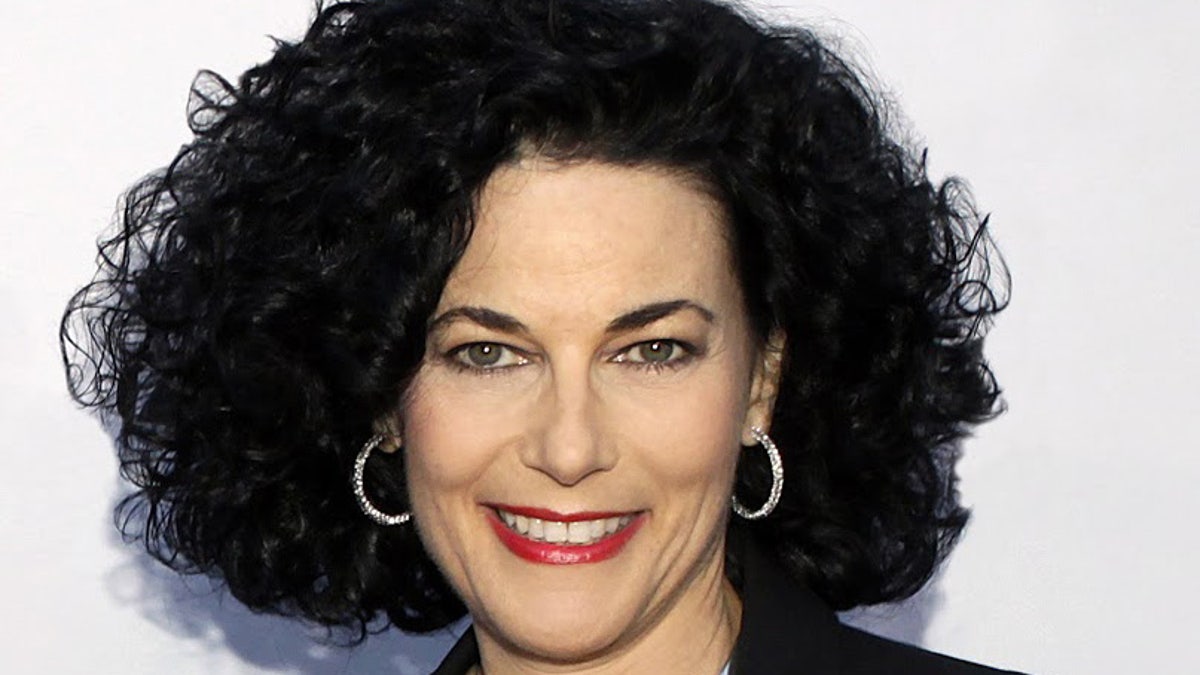
Hebe Tabachnik is Ibero-American programmer for the Palm Springs International Film Festival. (Photo by Juan Tallo)
LOS ANGELES – She may not be a household name, but Hebe Tabachnik is quickly becoming one of the most influential figures in Latin cinema.
As Ibero-American programmer for the Palm Springs International Film Festival, or PSIFF, and producer and festival director of the Guadalajara International Film Festival in Los Angeles, the Argentinian filmmaker handpicks the Spanish language films that will be introduced to U.S. audiences.
That means that a small-budget gem in Latin America will likely have a chance on the international stage if she chooses it. This year, there will be 33 films from 12 Latin American countries in the festival — which underscores Latin cinema’s growing influence in the U.S.
And with Hispanics becoming Hollywood’s most important audience, her talent is both rare and critical. In 2014, Latinos purchased 23 percent of the movie tickets sold nationwide though they account for 17 percent of the population, according to a study published by the Motion Picture of Association of America last year.
“My mission as a programmer is I feel I have an obligation to offer audiences a glimpse to our culturally diverse styles of cinema. And we have an incredible pool of talent from where we come from…” she told Fox News Latino. “Latin America is so rich, so layered, and then if you put that into stories it offers an arena to discuss and embrace our differences.”
- Latinos Help Fuel ‘Fast & Furious 6’ Success
- Success Of Bilingual Crossover Films Shows Hollywood’s Paying Attention To Latinos
- ‘Paranormal Activity’ Targets Latinos in New & Future Thriller
- Chico & Rita: Animation Film Taken To The Next Level
- ‘The Alamo’ movie set used by John Wayne fading away
- Murals, makeshift movie houses mark revival of neighborhood in San Juan, Puerto Rico
- Hemingway Film Brings Hollywood To Havana
Plus, she said, she’s just giving audiences what they are asking for.
“Sometimes you try to offer the best you have. Right now the audiences are asking for more Latin Cinema,” she said. “And, I believe that the PSIFF does provide an opportunity to show narratives that are contemplative.”
Tabachnik studied film at the Universidad del Cine in Buenos Aires, where she earned degrees in directing and screenwriting.
Recognized for excellence in selecting groundbreaking films, she has chosen films that go on to win awards around the world. She stays attuned to what’s hot in Latin cinema and has a strong knack for knowing which ones will do well with an international audience, particularly those in the U.S., said PSIFF festival director Darryl Macdonald.
“This is a rare gift and one that is essential for anyone who is seeking to build a broad-based audience for Latino cinema in the American market,” Macdonald said.
Her passion and talent, he said, have helped make Latin films an important part of the U.S. movie landscape.
“There's no doubt that she's had a profound effect on the film-going experience of people attending PSIFF,” Macdonald said, “and an equally profound effect on the appreciation for new Latino cinema in the U.S., among filmgoers, press and industry alike.”
Latin cinema is not only growing in the U.S. but across the world. And that’s because of efforts to train and nurture filmmakers in markets as small as Peru, Chile and even Guatemala. The training efforts are giving small markets an opportunity to get better.
Tabachnik said she reaches out to filmmakers in tiny markets and countries not known for their cinema and offers her advice and support. In one instance, she said, she heard about a Guatemalan film, “Ixcanul,” and she wanted it to be shown at PSIFF so much that she chased the film’s director, Jayro Bustamante, from film festival to film festival in Spain, Berlin and Toronto.
"It takes a slow yet steady progress in producing cinema worth taking notice,” she said, “and it takes a village to bring them support because there were such few showcases for [Bustamante] and other future writers, directors and producers, until now."
She said she was so enamored with the film, about an indigenous woman who does not want to live in the modern world but is forced to do so, because it is such a rarity to have strong female roles in Latin cinema.
“It takes a village to help bring these movies to audience’s mass appeal,” she said.
Tabachnik says she doesn’t pick movies simply because she believes they will sweep awards. She is enticed by good films with a compelling story. And the story has to resonate with her.
Among this year’s picks: “Liz in September,” a Venezuelan romance film that Tabachnik said is an example of a beautiful love story with a “beautiful cinematic experience;” Brazil’s “The Second Mother,” a story that celebrates women, both mothers and daughters; and there is the much acclaimed Mexican crime thriller “600 Miles;” and “Cooking Up a Storm,” which examines the differences among Hispanics through the different cuisines.
To say she stays busy is an understatement. She watches over 700 films a year and attends dozens of film festivals year-round in places like Guadalajara, Mexico or Buenos Aires, Argentina or San Sebastian in Spain to scout for films. She travels the world as a juror or lecturer.
“I try to show subject matters, genres and a blend of stories from nuestras raíces [our roots] as a celebration of us and [stories] that audiences in the past have said they were interested in seeing more of them,” she said.
This will be Tabachnik’s eighth year as a programmer at the 27th annual Palm Springs International Film Festival, which begins Friday and ends Jan. 11. And year after year, she has become a more integral part of the festival.
“I am living my dream as I work for the Palm Springs [International] Film Festival in trying to show universal stories that people will relate to around the world,” she said. “But most of the films selected are also stories that are moving away from stereotype.”














































